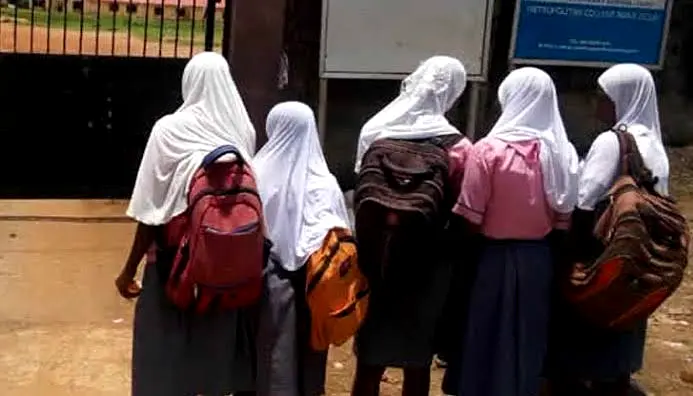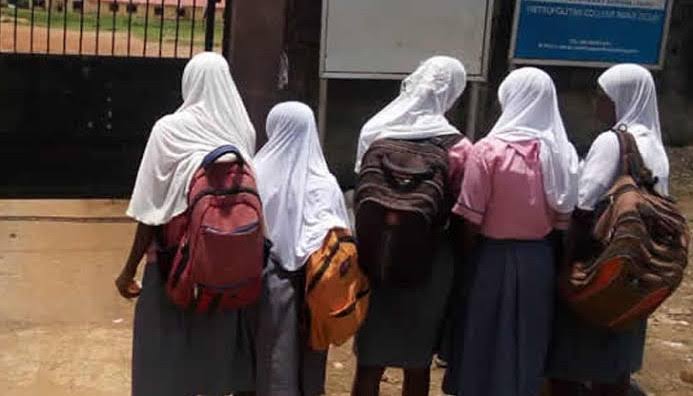

FOLLOWING the judgement of the Supreme Court allowing female students and pupils to wear the hijab (the Islamic veil) in public schools, the Lagos State Government should quickly do the needful to lay the controversy to rest.
The Supreme Court had, on June 17, 2022, in a split decision, ruled that female Muslim students have the right to wear the hijab to school. Thus ended a protracted legal tussle which started in 2014 when the Muslim Students Society of Nigeria, MSSN, and some secondary school pupils sued the Lagos State Government for preventing them from wearing the veil to school as demanded by their religion.
Justice Grace Onyeabo of the Lagos State High Court had upheld the state government’s prohibition of the hijab on October 17, 2014. But the Lagos Division of the Court of Appeal reversed the lower court’s ruling on July 21, 2016. The Supreme Court’s ruling in favour of the Muslim litigants brings the issue to a close.
Under the 1999 Constitution, Nigeria has no state religion. While some interpret this to mean that Nigeria is “a secular state”, others insist that our country is a “multi-religious state”. “Secular” state means that there is separation of church (or mosque) and the state. This is to prevent the country from sliding into a theocracy that could result in the violation of the religious rights of disadvantaged groups.
The argument is that if everybody is allowed to carry their religious baggage into public establishments like schools and the uniformed forces, the concept of uniformity will be defeated and interfaith rivalry will be pronounced.
On the other hand, “multi-religious” presupposes that the religious rights of citizens should be accommodated by government to allow citizens enjoy their full right to practise their faiths as guaranteed by the Constitution itself. It is on the basis of this that Muslim leaders brought Islamic traditions like pilgrimages and the wearing of religious toga into government business and schools.
It is quite obvious that even in the courts, this controversy was not entertained on its merit. Sentiments won the day. The implication of this judgement is that adherents of other religions now have the right to wear any fashion sanctioned by their religions to public schools in Lagos. Since Islam and Christianity are not the only religions that Nigerians practise, we must be ready to accommodate any form of dressing that students wear to school in the name of religion.
The Supreme Court has spoken. We call on the Lagos State Government to quickly issue the needful circular that allows the wearing of hijab in government-owned schools.









